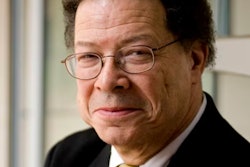The Health of the Nation: Why Affirmative Action Is Needed In Medical School Admissions
By Dr. Charles Terrell
As we begin to consider possible U.S. Supreme Court rulings in the University of Michigan cases, we seem to miss the point on how truly devastating a ruling that makes race-conscious decisions unlawful would be for our society.
We understand the short-term realities — that such a decision would limit the numbers of minorities on college campuses — but it’s often difficult to understand the long-term problems that would arise from a lack of diversity in higher education. In medical education, however, the long-term consequences are clear. A ruling that makes the use of race in college admissions unlawful would severely harm the health of the nation.
Up until the 1960s, medical schools were as segregated as most other institutions in American society. Three-quarters of all African American physicians were trained at the country’s two historically Black medical schools, Howard University and Meharry Medical College. The other 81 medical schools at that time enrolled, on the average, only one Black student every other year. The past four decades have seen a great deal of progress, and affirmative action programs have served as a successful mechanism for increasing diversity. But there is still a great deal of work to be done if medical school classes are to accurately reflect our society. Today, African Americans, Latinos/Hispanics and American Indians continue to be underrepresented in medical schools.
Barriers still exist for minorities interested in medicine. These problems can be viewed as the legacy of three centuries of overtly racist laws and traditions. These problems include high rates of poverty and lack of access to educational opportunities among minority populations. In light of this reality, there is a principled, ethical argument for increasing diversity in medical education using affirmative action programs. A just society must ensure that equal opportunity exists for all of those that are both capable and interested in pursuing a career in medicine.
There are also vital, practical needs for affirmative action. These needs all derive from the fact that affirmative action continues to be the most effective tool for promoting diversity in medical education, which is critical for protecting and improving public health.















